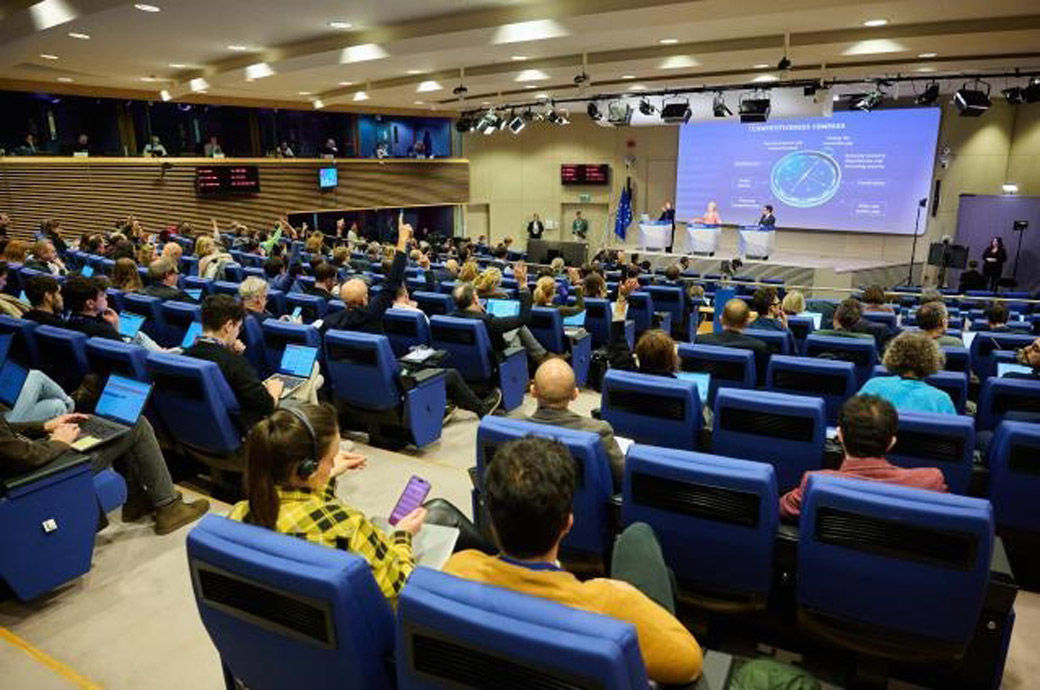The Compass sets a path for Europe to become the place where future technologies, services and clean products are invented, manufactured and put on the market, while being the first continent to become climate neutral, an official release said.
The European Commission has presented the Competitiveness Compass, the first major initiative of this mandate.
Three core areas for action identified are innovation, decarbonisation and security.
These are complemented by five horizontal enablers: simplification, lowering barriers to the single market, financing competitiveness, promoting skills and quality jobs, and better policy coordination.
Over the last two decades, Europe has not kept pace with other major economies due to a persistent gap in productivity growth. The EU needs to act urgently to tackle longstanding barriers and structural weaknesses that hold it back, the release noted.
“Europe has everything it needs to succeed in the race to the top. But, at the same time, we must fix our weaknesses to regain competitiveness. The Competitiveness Compass transforms the excellent recommendations of the Draghi Report into a roadmap. So now we have a plan. We have the political will,” European Commission President Ursula von der Leyen said.
Authored by former European Central Bank president and former Italian Prime Minister Mario Draghi, the Draghi Report last year identified three transformational imperatives to boost competitiveness.
The Compass sets out an approach and a selection of flagship measures to translate each of these imperatives into reality.
To reignite its innovation engine, the Commission will propose ‘AI Gigafactories’ and ‘Apply AI’ initiatives to drive development and industrial adoption of artificial intelligence (AI) in key sectors. It will table action plans for advanced materials, quantum, biotech, robotics and space technologies.
A dedicated EU Start-up and Scale-up Strategy will address the obstacles that are preventing new companies from emerging and scaling up.
A proposal for a 28th legal regime will simplify applicable rules, including relevant aspects of corporate law, insolvency, labour and tax law, and reduce the costs of failure. This will make it possible for innovative companies to benefit from one single set of rules wherever they invest and operate in the single market, the release said.
The Compass identifies high and volatile energy prices as a key challenge and sets out areas for intervention to facilitate access to clean, affordable energy.
It also foresees tailor-made action plans for energy intensive sectors—the backbone of the European manufacturing system—that are the most vulnerable in this phase of the transition.
The Compass refers to a new range of clean trade and investment partnerships to help secure supply of raw materials, clean energy, sustainable transport fuels and clean tech from across the world.
Within the internal market, the review of the Public Procurement rules will allow for the introduction of a European preference in public procurement for critical sectors and technologies.
The three pillars are complemented by five horizontal enablers, which are essential to underpin competitiveness across all sectors: simplification, lowering barriers to the single market, financing competitiveness, promoting skills and quality jobs, and better coordination of policies at EU and national levels.
Fibre2Fashion News Desk (DS)


